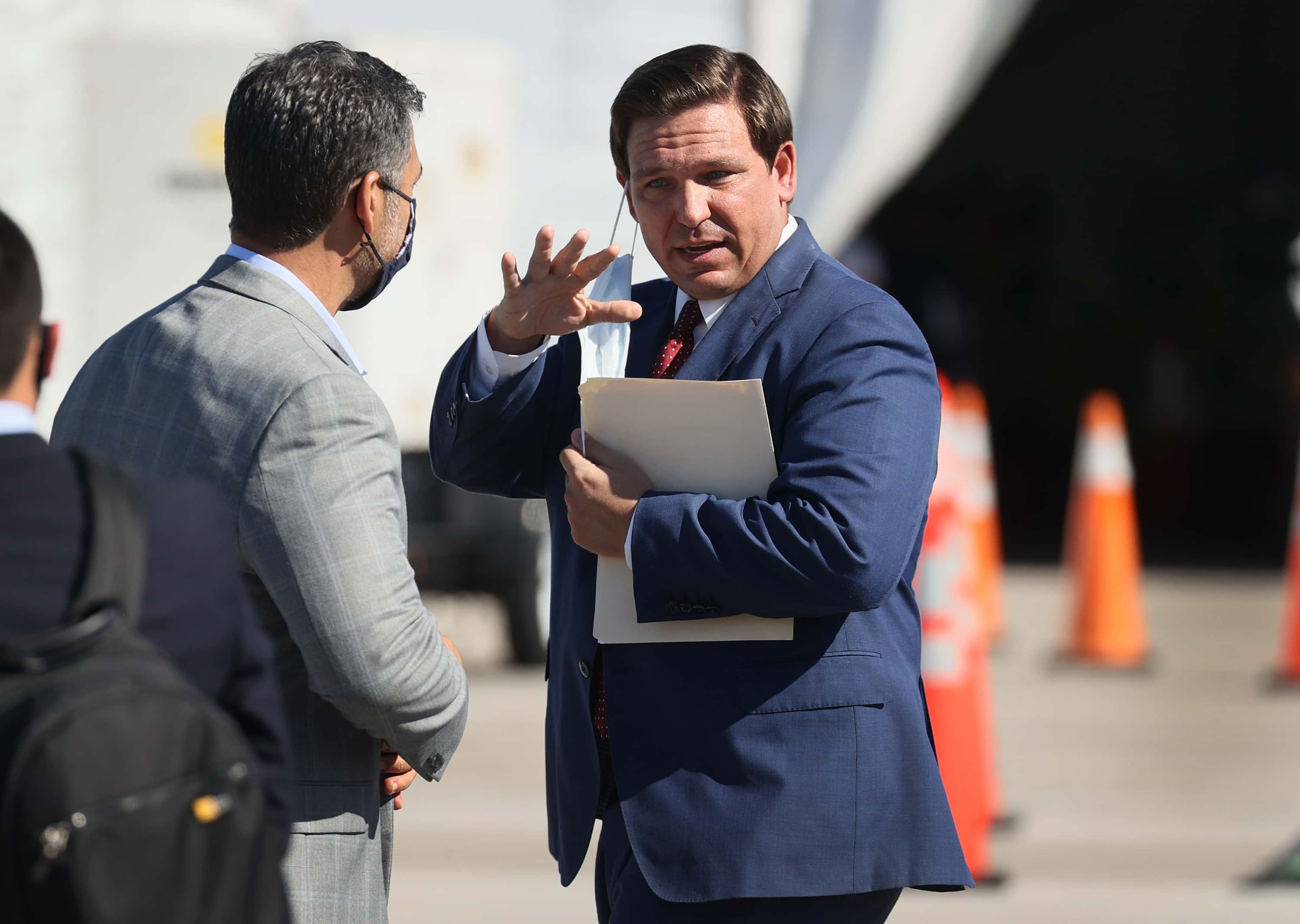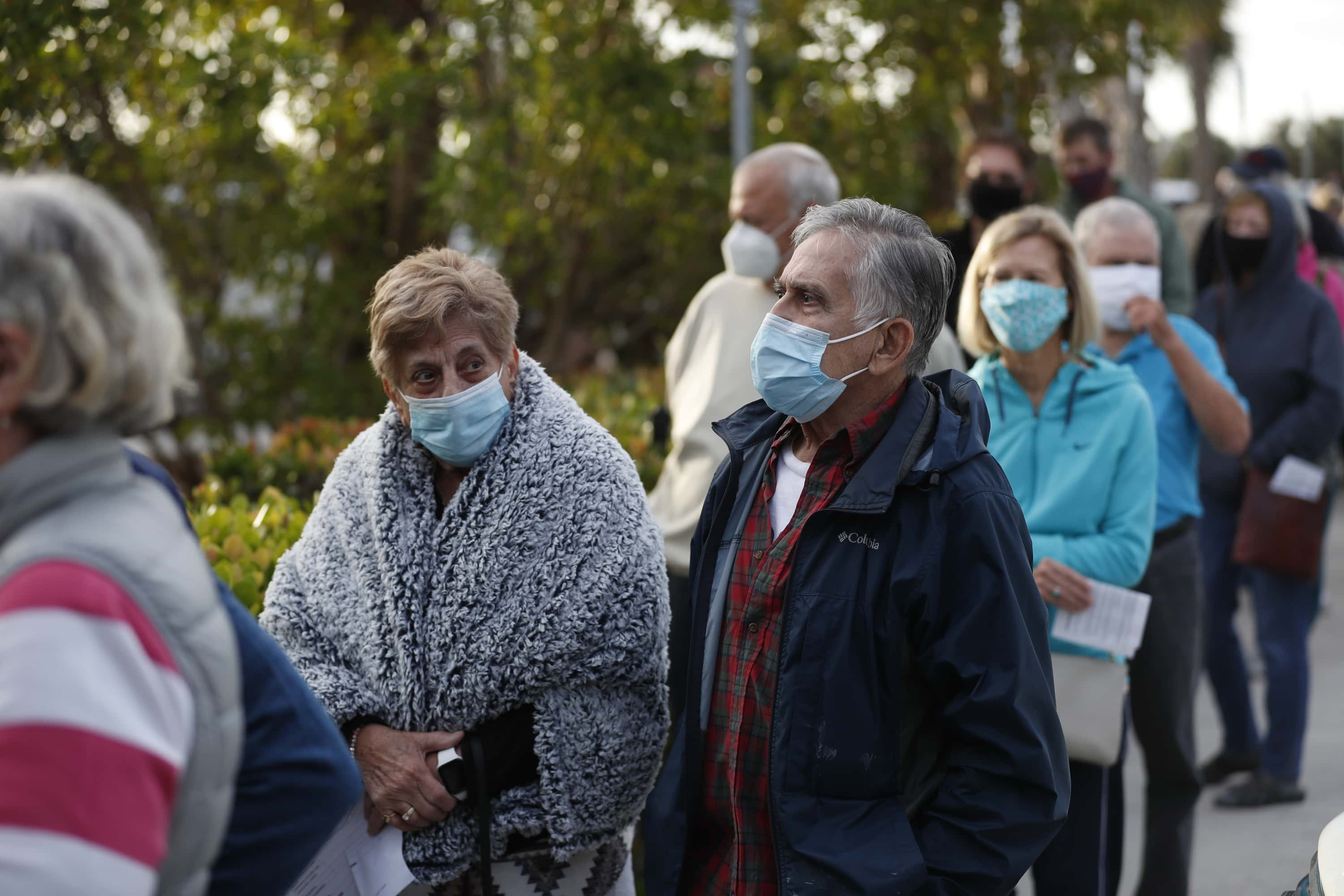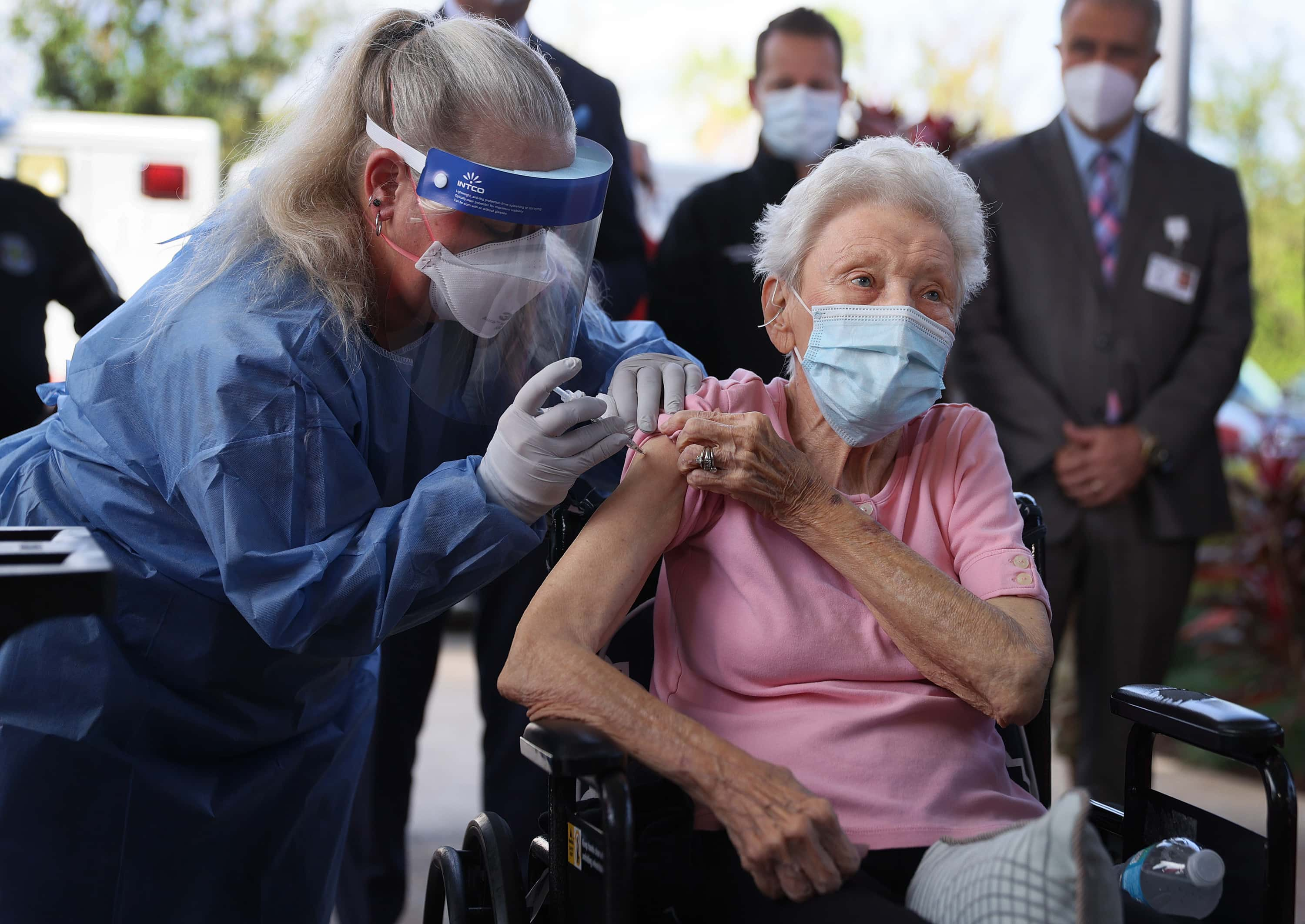Did Publix pay Ron DeSantis for Covid-19 vaccine rollout? Florida guv slammed for accepting $100,000 donation

Getting vaccines in Florida hasn't been easy for many residents. To address that, back in January, Governor Ron DeSantis announced a partnership with Publix grocery stores to distribute the vaccine. Why Publix? It could have something to do with their donation to DeSantis' PAC just weeks earlier.
A shocking new report claims that the grocery store chain donated $100,000 to DeSantis' PAC 'Friends of Ron DeSantis' just weeks before the announcement was made. The chain got exclusive access to distribute vaccines in Palm Beach, leading to accusations of pay-to-play against the Governor.
RELATED ARTICLES

It's not the only time DeSantis has put his donors first. The report by CBS News found other examples of how DeSantis gamed the system to favor donors, leaving a vast majority of Floridians out. It throws light on the great disparities the rich and poor have when it comes to getting vaccinated in the state, while DeSantis preps for reelection next year.
Florida's botched vaccine rollout
The vaccine rollout in Flordia has for the longest time allegedly been dictated by money. When vaccines first started rolling out to the general public, the town of Palm Beach received 1,000 doses while the neighboring city of West Palm Beach received none. West Palm Beach Mayor Keith James told CBS that the county's health director blamed it on a 'miscommunication'. There's no real proof, but by analyzing the two towns' demographics, it is easy to understand James' frustration. "Isn't it funny that these mistakes only happen in communities that have that kind of wealth? They didn't make a mistake and send a thousand doses to the poorest communities in our county?"
The inequality in access can be traced back to a move DeSantis made in late December. Breaking from CDC guidelines, DeSantis announced that all residents above 65 would be next in line, rather than other essential workers. That announcement does have some backing in science. Seniors are most likely to fall seriously ill, be hospitalized and even die from Covid-19. Vaccinating them first would help reduce the strain on Florida's healthcare system. The issue though was how the state went about it.
As residents competed with neighbors and friends to get vaccinated, Florida's public health system failed to cope. Phone lines and websites routinely crashed, making it almost impossible to book an appointment. Since there was no residency requirement, the system was put under further strain from those outside the state flying in to get their shot. As a result, minority communities were left out in the cold. According to CBS, "state data revealed of the more than 160,000 residents in Palm Beach County who'd been vaccinated, only 2% were Black and 3% Hispanic. Even though minorities make up almost half the county."
Without smartphones or computers, minorities were finding it extremely difficult to book their appointments. To help ease the public systems' pressure, DeSantis made a game-changing move — rope in the private industry.

Allegations of corruption
In January, DeSantis announced a partnership with Publix to distribute vaccines, even though the store is not as ubiquitous as a government health facility. For example, the closest Publix is 25 miles from Glades, a low-income neighborhood outside West Palm Beach. It's a two-hour round trip, in the middle of a pandemic, if a Glades resident wants to get their shot. So why did DeSantis decide to pursue this plan? It could be because of their donation to his campaign. De'Santis' links to Publix go back even further. Julie Jenkins Fancelli, the heiress to the Publix fortune, donated $55,000. Fancelli's brother-in-law, Hoyt R Barnett, a retired Publix executive, also donated $25,000.
The deal is extremely lucrative for Publix. Under Medicare guidelines, shots from private establishments can cost up to $40, as compared to the nearly $0 charged by public health institutions. Put that fact alongside the fact that many were being redirected to Publix instead of public health centers, and you can see a very clear example of a pay-to-play scheme. When confronted with the facts, DeSantis said, "that's a fake narrative".

In another instance, the community of Lakewood Ranch in Manatee County just south of Tampa was selected in February to be a 'vaccine pop-up site'. The community received 3,000 doses, with DeSantis arguing "we saw a need, we want to get the numbers up for seniors". However, there might have been more at play than just a 'need'. Lakewood Ranch developer Pat Neal has reportedly donated $135,000 to the Friends of Ron DeSantis PAC.
There are now serious questions over whether DeSantis discriminated against poorer communities while helping line his coffers for reelection. It's not just Publix though, DeSantis has partnered with a number of private businesses such as CVS, Walmart and Harveys to distribute vaccines. There are also several federal mass vaccination sites now open. The big question though is if DeSantis engaged in a pay-to-play scheme at the cost of the public. So far, it seems like the answer is yes. CBS was yet to receive a response from Publix or the Governor's office.










